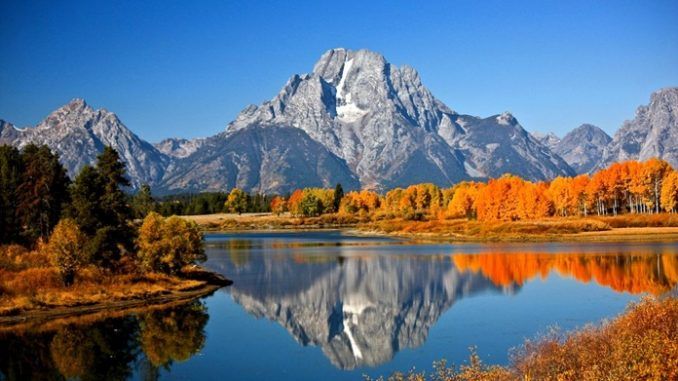
Congressman Paul Gosar (R-Ariz.) has introduced House Joint Resolution 46, making it easier for oil and gas companies to drill within National Parks.
Environmental groups oppose the bill that aims to roll back recently introduced regulations, making it harder for the National Park Service to monitor private oil and gas companies that want to extract oil and natural gas in split-estate national parks.
Cubed reports:
The move was noted in a release by the self-billed “independent, nonpartisan” National Parks Conservation Association (NPCA) which breaks it down like this: The resolution, named H.J. Res. 46, would eliminate the 9B regulations passed by the Obama administration in November 2016 to oversee drilling on federal land. The so-called “split-estate” situation involves land acquired by the federal government for national parks where private owners maintain their rights to potentially lucrative minerals underground.

BYPASS THE CENSORS
Sign up to get unfiltered news delivered straight to your inbox.
You can unsubscribe any time. By subscribing you agree to our Terms of Use
Rep. Gosar said in a statement that his resolution would eliminate regulations that he believes “jeopardize significant investments made by job creators, states and private companies.” He went on to note that “the federal government has no right to impose job-killing regulations for private and state-owned oil and natural gas wells not owned by the federal government, especially when these wells are already subject to existing environmental regulations.”
Some key split-estate parks include Everglades National Park in Florida, the Grand Teton National Park in Wyoming, the Flight 93 Memorial in Pennsylvania, and the Grand Canyon National Recreation Area.
It’s also important to note that due to this particularly quirky legal status, there are a dozen national parks that currently have oil and gas operations—including Big Cypress National Park in Florida, with 20 active wells, and Lake Meredith Recreation Area in Texas, with 174 active wells.
According to Nicholas Lund, senior manager for the NPCA’s Landscape Conservation Program, the 9B regulations weren’t considered controversial when they were introduced, though industry groups such as The Independent Petroleum Association of America, Western Energy Alliance, and the American Exploration & Production Council filed comments in opposition to the proposed rule. The regulations brought wells under National Park Service regulations, removed a cap on financial bonding requirements for drillers (basically fronting a deposit to pay for any potential damages), and strengthened enforcement powers.
But Lund believes the resolution, which would roll back the safeguards found in the 9B rules, will threaten national park land and potentially damage surface lands and waters. And, due to the stipulations of the Congressional Review Act, if this resolution is passed, it will take Congressional approval to re-instate the regulations.
“It’s beyond me why the Congress would want to do this to national parks,” Lund says.
Edmondo Burr
CEO
Assistant Editor
Latest posts by Edmondo Burr (see all)
- Police Arrest Suspect In Supermarket Baby Food Poisoning - October 1, 2017
- Seoul Secures Data From Electromagnetic Interference By N Korea - September 30, 2017
- The ‘World’s First Internet War’ Has Begun: Julian Assange - September 30, 2017

Be the first to comment